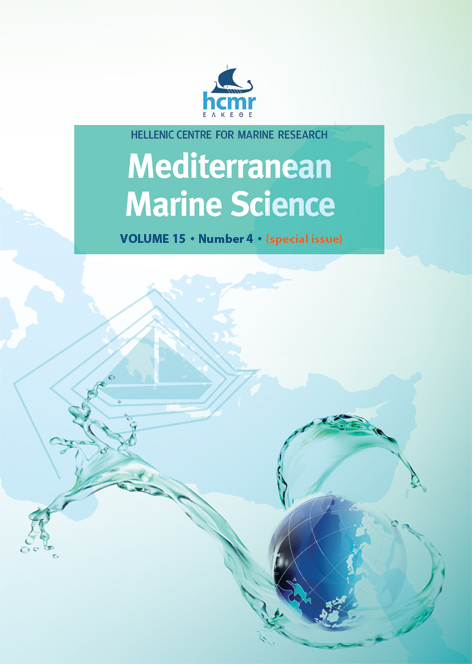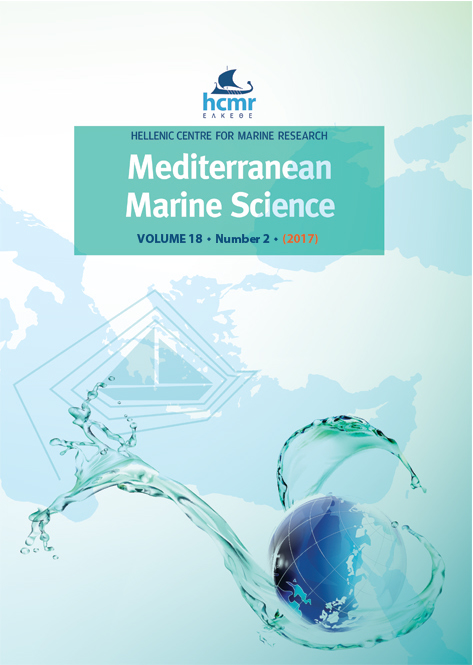HF Radar observations of the Dardanelles outflow current in North Eastern Aegean using validated WERA HF radar data
Περίληψη
A two-site WERA HF radar station was installed in November 2009 at the eastern coast of Lemnos Island in North Aegean Sea, aiming to monitor the surface inflow of Black Sea waters exiting from the Dardanelles Strait, as well as to constitute a coastal management tool for incidents of oil-pollution or save-and-rescue operations. Strong interference by foreign transmissions is a source of noise deteriorating the quality of the backscattered signal, thus significantly reducing the HF radar’s effective data return rate. In order to ameliorate this problem, further quality-control and data gap interpolating procedures have been developed and applied, to be used in addition to the procedures incorporated and used by the manufacturer’s signal processing software. The second-level processing involves traditional despiking in the temporal domain, preceding Empirical Orthogonal Function analysis. The latter is used not only to filter high-frequency noise but also to fill data gaps in time and space. The data reconstruction procedure has been assessed via comparison of (a) HF radial with CODE-type drifter radial velocities as well as (b) HF-derived virtual drifter tracks with actual drifter tracks. The main circulation features and their variability, as revealed by the reconstructed fields, are presented.
Λεπτομέρειες άρθρου
- Πώς να δημιουργήσετε Αναφορές
-
KOKKINI, Z., POTIRIS, M., KALAMPOKIS, A., & ZERVAKIS, V. (2014). HF Radar observations of the Dardanelles outflow current in North Eastern Aegean using validated WERA HF radar data. Mediterranean Marine Science, 15(4), 753–768. https://doi.org/10.12681/mms.938
- Ενότητα
- Special Issue MEDIAS
Authors who publish with this journal agree to the following terms:
- Authors retain copyright and grant the journal right of first publication with the work simultaneously licensed under a Creative Commons Attribution Non-Commercial License that allows others to share the work with an acknowledgement of the work's authorship and initial publication in this journal.
- Authors are able to enter into separate, additional contractual arrangements for the non-exclusive distribution of the journal's published version of the work (e.g. post it to an institutional repository or publish it in a book), with an acknowledgement of its initial publication in this journal.
- Authors are permitted and encouraged to post their work online (preferably in institutional repositories or on their website) prior to and during the submission process, as it can lead to productive exchanges, as well as earlier and greater citation of published work (See The Effect of Open Access).







